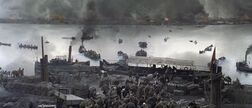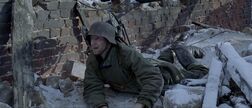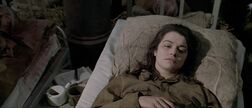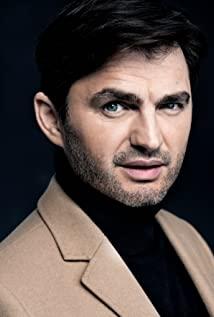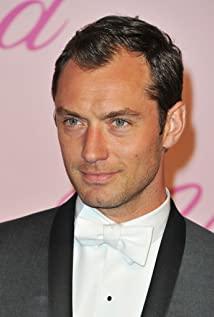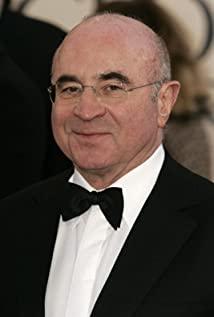There is no doubt that the film, of course, and indeed, was not very friendly towards the Soviet Union
Just look at the director to know, Jean-Jacques Arnault, Wolf Totem is a well-known director's work, and there is another one that was banned in the mainland, Tibet for seven years, and you can see how deep the director's hostility to communism is by watching that.
It may not be a historical fact, but if it is shown too much, it will make people feel resentment and resentment.
Let’s talk about other things first. The legendary bare-ass was watching online resources. I didn’t see it, and I wasn’t interested. I went out to see more. Saxia’s death was a little sad. Khrushchev’s performance was actually quite good. Bloody, temperamental, and willful, he is not an ordinary person.
Then talk about the highlights
The highlight of the army, or what the director wants to focus on, is two aspects, one is sniping, and the other is human nature.
sniper
Sniping is a portrayal without much controversy. Five confrontations, as propaganda by Soviet political workers, Vasily, who came from the bottom but is simple and sharp, and the major who came from a famous family with a noble face, are just like a class struggle.
Although the Nazis themselves came to power from grassroots, the main body of the Wehrmacht still concentrated the arrogance of the Prussian aristocracy
Tsundere's head was incisively and vividly swaying at the last moment. Why did the major stick out his head at the last moment to confirm that Vasily was killed? Or pay tribute to the brave commissar and be willing to die under the gun of fate?
Very confused, I guess the director doesn't know how to make the major die honorably and have to die
Glory is because he is the pride of the Iron Cross, and the indomitable aristocracy flows in his blood. The director respects this, and the French mentality is understandable; it must be because I seriously doubt that the director has a strong transcendentalism and heroism complex, How to prove the victory or defeat of the war, the confrontation between the elites on both sides decided the victory or defeat of the war, so the major must die, otherwise how to prove that the Soviet Union won Stalingrad?
To show the confrontation between elites, to show the big-scale showdown, and to show the trend of the historical facts of the war, there is still a lingering contempt for the Soviet Union in the mind.
It's hard to be a director
The subtitle on the back is that after the elites sniped each other, the Soviet Union won in two months. Those who don’t know the historical facts think that the Soviet Union won the war by sniping, and this kind of victory is because the major is inexplicably proud and glorious. Death is the ending, which fully reflects the director's historical view of the Soviet-German war:
Aristocratic Germany was defeated by the crowded and slightly rogue Soviet Union
Can't say it's not true, but at least it's not comprehensive
As a matter of fact, there are two main reasons for the failure of the German army in Stalingrad. The supply of the Volga River has never been cut off, and the Soviet army can hold on;
Sniping, it can't be the deciding factor, unless you beat Adolf or Joseph
human nature
The focus of human nature is dystopia, and the essence of dystopia is that the director's resentment and hostility to the Soviet Union are too deep
At the beginning of the film, the dazed Soviet recruits were forced to charge, with insufficient guns and ammunition. There were Nazi iron hooves in front and political commissar machine guns in the back. What happened to the recruits really confirmed the historical facts. Each soldier lived no more than 9 minutes. But there is one thing, can you save the bullets of the war supervisor? It is not enough to beat the Germans, and it is so generous to beat your own people.
Still that sentence, it may not be a historical fact, but it will make people a little disgusting if it goes too far.
Kriegev, who was full of steel teeth, described the domestic political atmosphere in the Soviet Union before and after the war. He told in a mocking tone that after returning from Germany, he was brutally forced to confess by "my own people", so that his mouth full of teeth was broken with a hammer, including the battle. ex-Adolf and Joseph arm-in-arm banter
As for the ending, the political commissar's confession to Vasily revealed the director's strong author sentiment: I used to be such a fool, Vasily! People are people, and nothing will change. We try to create a communist society where people don't envy their neighbors. But there is always something in this world that makes you jealous. A smile, a friendship, all those things you could ask for. In this world, even in the Soviet world, there are always rich and poor. Rich in talent, poor in talent. Rich in love, poor in love.
A little superficial, utopia is an unattainable ideal, but the monologue of the political commissar is more like a lovelorn uncle's despair of life, which is very far-fetched in connection with the communist society
The outline of this line, I think, looks bright at first glance, but if you study it carefully, it will fail.
For sniper, this movie is an out-and-out typed elite war film; in terms of human nature, this film is an out-and-out expression of the author's strong emotions.
View more about Enemy at the Gates reviews




